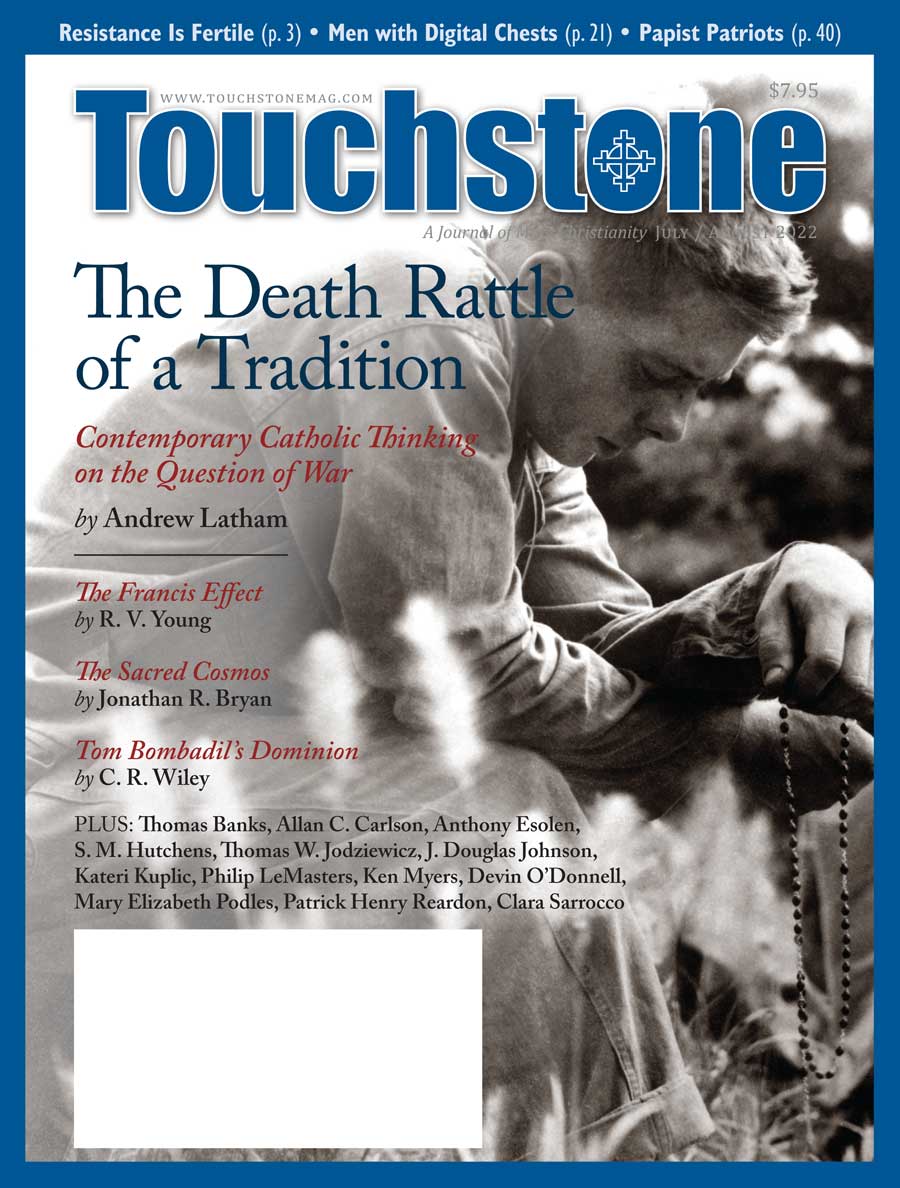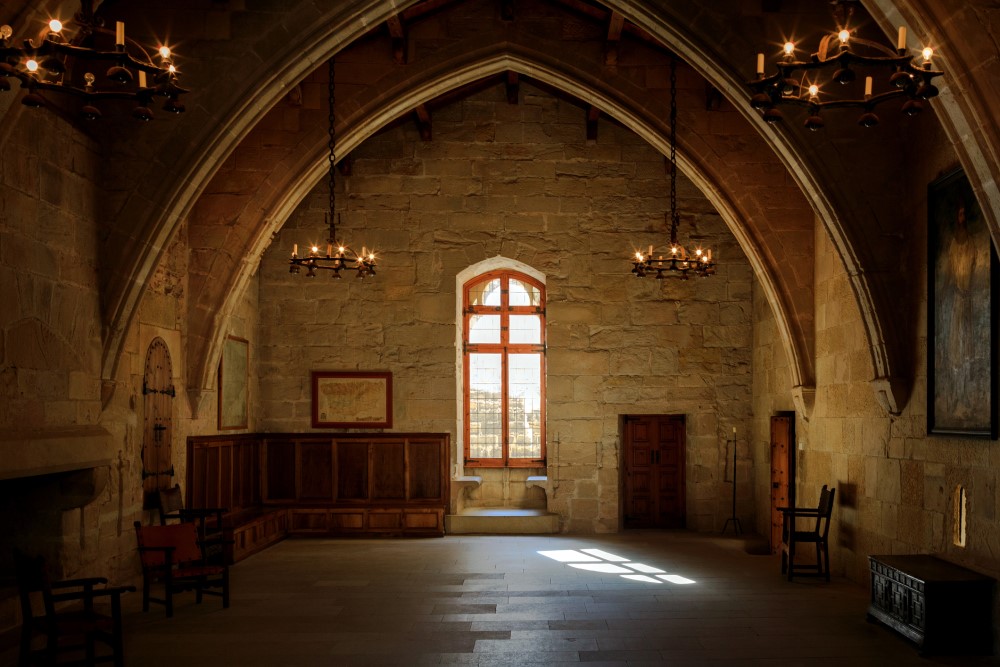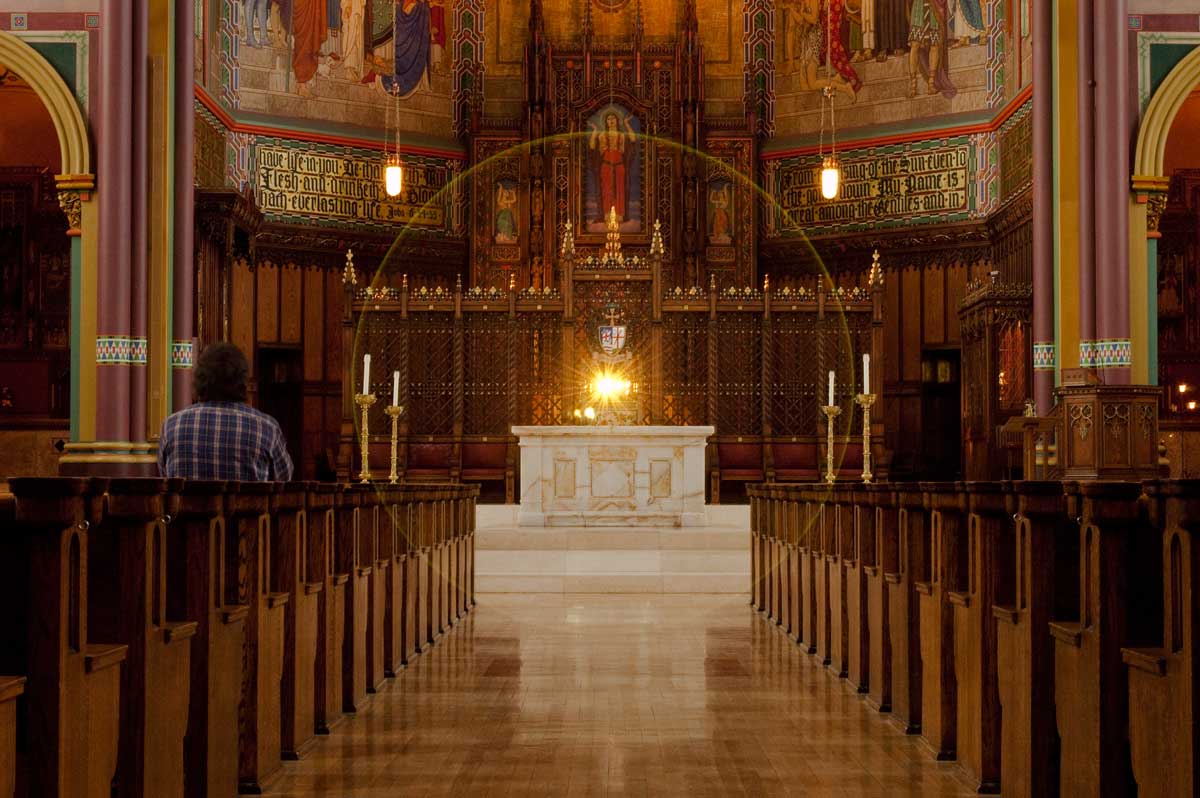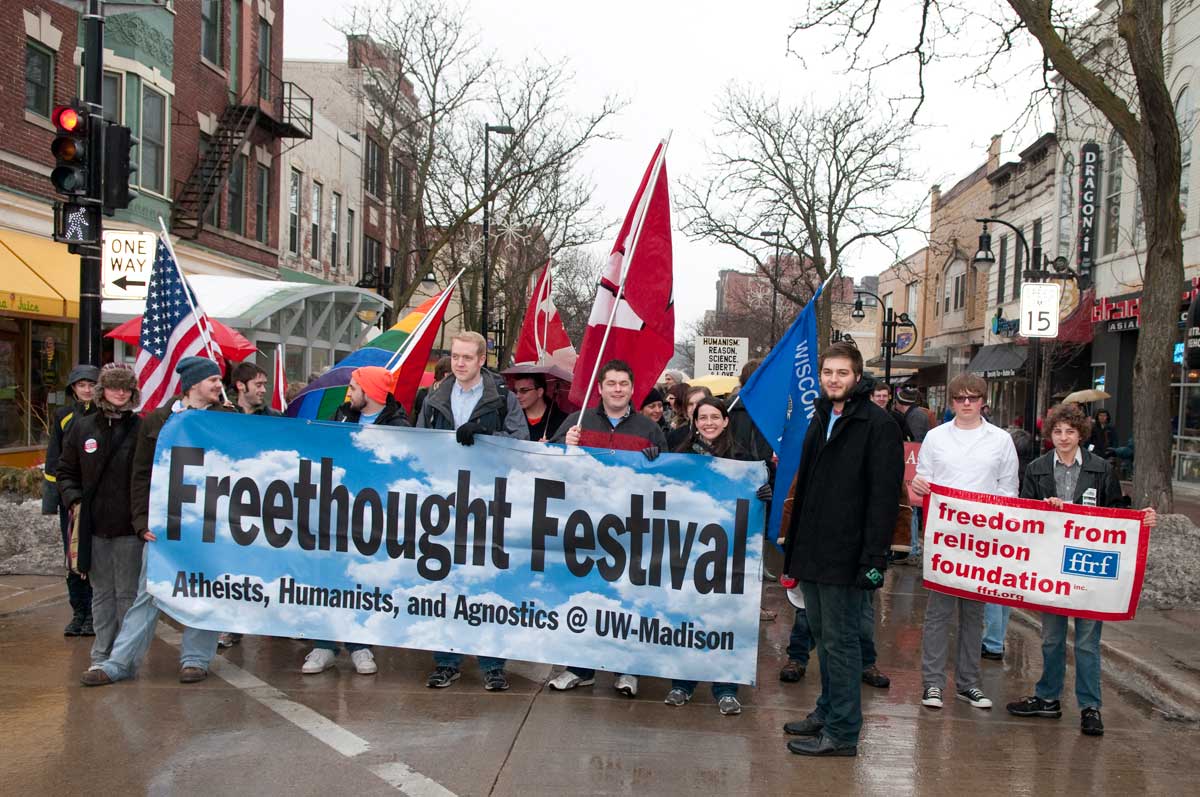The Death Rattle of a Tradition
Contemporary Catholic Thinking on the Question of War
It is no secret that since the 1960s, the Catholic tradition of moral reflection on international affairs, a tradition that has been unfolding at least since the time of St. Augustine, has taken a decidedly leftward turn. Whether the issue has to do with war and peace, development and the fight against poverty, protecting the environment, or encouraging disarmament, Catholic doctrine—as articulated most comprehensively in the Compendium of the Social Doctrine of the Church—has become virtually indistinguishable from the views of leftist scholars and progressive activists.
Nor are the reasons for this turn unknown. Beginning in the interwar period but accelerating in the 1960s, Catholic international thought has been powerfully reshaped by several emergent intellectual trends. Chief among these are Marxist theories of imperialism; the dependencia theories of thinkers like André Gunder Frank and Samir Amin; the writings of the Frankfurt School theorists, such as Herbert Marcuse; the thought of "peace studies" scholars, such as Johan Galtung; the Catholic pacifism of James Douglass and Gordon Zahn; the active nonviolence embodied in Gandhi and Martin Luther King Jr.; and, of course, the liberation theology of thinkers like Gustavo Gutiérrez and the Jesuit priest Juan Luis Segundo.
A Rupture, Not a Development
What is less well understood, however, is the profound degree to which this "progressive turn" constitutes a rupture in the 1,500-years-long history of what I will call the "deep tradition of Christian international thought." The conceit on the left is that developments in Rome's moral reflection on international affairs in the decades since the Second Vatican Council have been nothing more than the unfolding of that millennium-and-a-half-old tradition. The reality, however, is quite different. For the past half-century or so, progressive Catholic thinkers have been less interested in updating traditional Christian international doctrine in light of "the signs of the times" than in remaking that doctrine in the image of their radically nontraditional political theology of war and peace.
The result has been the death of Catholic international theory, at least in the sense that the distinctively Christian cum Catholic tradition of reflection on international affairs, which persisted from the time of St. Augustine until the mid-twentieth century, has passed from this world. In its place has congealed a toxic brew of progressive bromides that is indistinguishable, except for a thin theological foam, from the secular, materialist, cultural-Marxist international thought currently prevalent on the progressive left.
In this article, I will focus on a relatively under-explored aspect of the rupture in this Christian tradition of thought: the causes of war. I adopt this focus not because the causes of war are necessarily more important than other aspects of war (its morality, legal regulation, and so forth), nor because the study of war is necessarily more important than the study of other aspects of international relations (development, human rights, and so on). Rather, I adopt it because it has a provenance that goes back to St. Augustine, making it unquestionably the most enduring element of both the broadly Christian and specifically Catholic tradition of theorizing the international. Consequently, I believe that studying changes in this body of thought and doctrine may open the most meaningful window through which to view the "great divide" that has opened up between the deep tradition of Christian international thought and Catholic international thought today.
Two Traditional Causes
What does the deep tradition have to say about the causes of war? At the risk of oversimplifying a rich and varied body of moral and political reflection, we can say that pre-twentieth-century Catholic thought located the causes of war in two things: humanity's fallen nature and the anarchic nature of the international system.
With respect to the first of these, from the time of the Church Fathers, pivotal Christian thinkers such as Origen, Tertullian, and Augustine argued that war was a byproduct of personal sin. As a result of Adam's fall, they all agreed, pride, vanity, and what Augustine called libido dominandi—the lust for domination—drive princes to attempt to subjugate their own people and their neighbors, and to perpetrate other grave evils. As Augustine and Aquinas argued most explicitly, humanity's fallen nature gives rise to two kinds of war: unjust wars, motivated by pride, greed, and libido dominandi; and just wars, fought in self-defense against unjust aggression, to vindicate the rights of those wronged, or to otherwise punish evil-doers.
With regard to the second cause, from the Middle Ages on, Christian thinkers such as the imperial apologist Dante Alighieri and the French royal publicist Pierre Dubois came to view what we would now call the "anarchic international system" as another important, if mostly permissive, cause of war. Such an international system, they argued, by its very nature lacks a universal political power that could mediate disputes between kingdoms and other lesser powers and so maintain the peace. As a result, the conflicts that naturally arise between political units pursuing their own interests can only be resolved by arbitration, diplomacy, or, if those fail, war.
For Dante, this argument took a very specific form: war was caused by the lack of a universal empire that could definitively adjudicate disputes between lesser powers. So, too, for his contemporary Dubois. A French lawyer and political pamphleteer during the reign of Philip IV the Fair, and author most famously of De recuperatione Terrae Sanctae ("On the Recovery of the Holy Land"), Dubois argued that war was caused by the lack of an international council charged with maintaining the peace between sovereign principalities—what we would now call providing "collective security."
Radically New Explanations
Built on deep Christian tradition, this was the prevailing etiology of war among Catholic thinkers through the early twentieth century: war was the product of fallen human nature and of the anarchic nature of the international order. Beginning in earnest in the 1960s, however, Rome initiated a root-and-branch re-examination of this understanding of war. As Gaudium et Spes—one of four constitutions produced by Vatican II which sought to explain the Catholic Church to the non-Catholic world—put it, the post-Vatican-II era was to be a time for "a completely fresh appraisal" of war.
What was the result of this "completely fresh appraisal"? Simply put, in the aftermath of Vatican II, a progressive and Marxist-influenced vanguard movement within the church began to develop a radically new set of explanations for the age-old scourge of war—explanations that ultimately represented, not a gradual unfolding of the specifically Catholic current of Christian international thought, but a revolutionary departure from it.
The "Structural Sin" Theory
The first manifestation of this departure from tradition is the belief that war is caused, not by personal sin, but by structural sin, sometimes referred to as structural evil. Since the first official articulation of this term, at the 1968 Medellin Conference of Latin American Bishops, it has been used on the Catholic left to refer to the evil that extends beyond the sins committed by individual people to the violence and injustice produced and reproduced through societal institutions and cultural norms.
These institutions may be political in nature, having to do with the direct oppression of groups or peoples through state power. But they may also be political-economic, taking the form of unjust systems of economic organization that systematically redistribute wealth in ways that harm people by preventing them from meeting their basic needs. Finally, these institutions and norms may be social in nature, systematically marginalizing, excluding, or subordinating certain groups based on ascribed
identities.
How does structural sin cause war? Simply put, progressive Catholic international thought—and especially what has come to be known as "just peace" theory—asserts that conflict happens when those seeking to perpetuate unjust or violent institutions and cultural norms clash with those who seek to resist or overturn them. These clashes can take various forms: democratic politics, activism, protests, riots, and so on. But when they take the form of organized violence on a mass scale, they become war. Structural sin, then, can be said to be one of the major causes of war.
Although it may appear that the concept of structural sin as a cause of war is merely an evolution of the traditional Catholic understanding that war is caused by personal sin, in reality, this concept marks a profound rupture with the traditional understanding. Historically, the idea of structural sin did not develop merely as an extension of the idea of personal sin. Rather, it was a radically new concept forged during the 1960s by theologians such as Gustavo Gutiérrez, Leonardo Boff, and Jesuits Juan Luis Segundo and Jon Sobrino out of the raw materials provided by a variety of Marxist and quasi-Marxist social theories. Therefore, to explain war in terms of structural sin is not simply to unfold the deep Catholic tradition of international thought, but to graft an utterly alien concept onto that tradition.
The "Merchants of Death" Theory
Second, in more recent years, progressive Catholics—including Pope Francis himself—have advanced another new explanation for war: the "merchants of death" theory. According to this theory, first floated in the aftermath of the First World War, wars are caused in no small measure by the manufacturers of and dealers in weapons systems. Large armament firms, what we might now call "Big Arma," demonically pressure nations to start and enter wars, not for the sake of self-defense, righting wrongs, vindicating rights, or restoring a stable balance of power, but solely for the purpose of raking in more and more filthy lucre.
What is the source of this theory? Not Scripture, to be sure, and certainly not the traditional theology of the church or its 1,500-year-old tradition of international thought. No, the source of this theory is the half-baked Marxism of the post-World War I peace movement, an ideology that sought to lay the blame for that war, and indeed all wars, on the capitalist ruling class and its ruthless pursuit of its own narrow self-interest. Specifically, the argument on the progressive left—and even, in 1936, among members of the so-called Nye Committee of the U.S. Senate, convened to investigate the munitions industry—was that the war was caused by wicked capitalists greedily seeking to maximize their profits by ginning up international conflict and thereby expanding the market for their lethal wares.
Of course, no serious scholar of the causes of World War I would argue today that the "merchants of death" had anything to do with either the outbreak of the war or America's entry into it. Instead, when seeking to explain the outbreak of the Great War in 1914, they look to Thucydides' perennial causes of "honor, fear, and interest" as well as to secularized versions of the timeless logic of Catholic international thought. Nevertheless, the myth continues to roam zombie-like across the intellectual landscape of progressive Catholic social thought, as even a passing glance at the literature calling for the replacement of Just War theory with something called Just Peace theory will readily attest.
Indeed, such explanations for war can be found even in recent papal pronouncements, which now routinely denounce Big Arma as irredeemably evil in God's eyes. As Pope Francis himself has put it on numerous occasions since he first raised the issue publicly in an address to a crowd in St. Peter's Square in June 2014, the leaders of the "industry of death" simply "don't want peace" because they "make their living with the production of arms." Such malefactors, he has declared, cannot be true Christians; and those who claim to be so are therefore nothing more than hypocrites, respectable on the outside but, as Matthew's Gospel says, "within full of dead men's bones, and of all uncleanness."
The "Hating the Other" Theory
Third, in his annual World Day of Peace address on January 1, 2020, Pope Francis declared that war "often begins with the inability to accept the diversity of others, which then fosters attitudes of aggrandizement and domination born of selfishness and pride, hatred and the desire to caricature, exclude and even destroy the other." To be sure, the church's traditional teaching on the etiology of war has always been premised on a strong causal link between "attitudes of aggrandizement and domination"—Augustine's libido dominandi—and violent conflict. But this was assumed simply to be an inherent and universal aspect of the postlapsarian human condition. It was never connected in any way to what Pope Francis characterized as the "desire to caricature, exclude, and even destroy the other."
That second motive has nothing whatsoever to do with the unfolding of the deep tradition of Catholic international thought in light of the signs of the times. Instead, for those with eyes to see, it is clearly and undeniably a reflection of contemporary progressivism—not at all related to traditional Catholic teaching regarding the causes of war.
Grounded in Pelagianism
The new Catholic theory of the causes of war is grounded in a kind of Pelagianism rather than the Augustinian realism that has always characterized the Catholic tradition of international thought. Augustinian realism holds that in a world populated by fallen human beings operating through imperfect institutions, the possibility of war is ever-present. It can never be completely abolished or eliminated from political life—in contemporary parlance, it's a feature rather than a bug.
This tradition did, of course, teach that the problem of war could be managed and mitigated. For example, it professed that properly ordered international institutions could reduce both the incidence and the intensity of armed conflict. But it also held that the problem of war could never be definitively solved or transcended—at least not until the return of Christ.
Pelagianism is based on a radically different set of assumptions. This early Christian heresy holds that human beings are not fallen—that is, not tainted by original sin. According to this view, the world is full of sin and evil, but both individual human beings and collective human institutions can be redeemed and perfected through acts of will. In other words, Pelagians believed that if those who had seen the light could convince other people of their views through personal and political efforts, then all the world's people could be perfected and all the world's evils eliminated. But that can happen only if people first organize to delegitimize evil and then develop just and righteous alternatives.
Concerning the causes of war, this way of thinking, as George Weigel argues in his book Tranquillitas Ordinis, assumes that war is an artifact, not of a fallen humanity, but of a wicked ruling class. Specifically, it assumes that those who have usurped the power to rule are malevolent by their very nature. Whether they be thrones, or dominions, or principalities, or powers, they are created by an evil god and exist to do his bidding. They are prepared to kill human beings and destroy the fruits of human labor on a massive scale for no reason other than to satisfy their own disordered lust for domination.
Simply put, for Pelagians, the powers that be are corrupt to the point of being evil. The progressive Christian minority, therefore, must arm itself with the liberating knowledge of the world as it really is—the world that only they can understand and that the hoi polloi are too simple or unenlightened to grasp—in order to check the libido dominandi of the warmongering oligarchs and bring about an era of perfect and perpetual peace.
Non-trivially, this Pelagian approach to questions of war and peace makes a mockery of Pope John Paul II's 1982 declaration that "Building peace . . . depends upon the progress of research about it. Scientific studies on war, its nature, causes, means, objectives, and risks have much to teach us on the conditions of peace." But under the current dispensation, studies of the nature, causes, means, objectives, and risks of war have largely been ignored in favor of a meaningless condemnation of anything that is anathema to the Catholic left. In place of the studies called for by the Polish pope, we have been left with little more than a fabulist tale in which the heroic leadership of an enlightened, progressive elite ultimately saves the world from a cabal of malevolent warmongering rulers who are forever scheming to plunge the world into the next war.
Ultimately, the problem with these enlightened elites and their secret knowledge of how to end war is that their Pelagian worldview is simply delusional—contrary to Augustinian realism and self-evident reality. Among their many other errors, their understanding of salvation history is gravely wrong. We live in neither the prelapsarian moment (when Adam's posterity had yet to invent war) nor the millennial one (when Jesus Christ will abolish war for all time). Instead, we live in a benighted interregnum bookended by the Fall and the Parousia, a historical epoch characterized by a tendency toward perpetual war rather than the prospect of perpetual peace.
The True Root Cause
The foregoing is not, of course, a full accounting of the Catholic left's rupture with the millennium-and-a-half-old tradition of Christian international thought. The proliferation of neologisms such as "integral disarmament," "integral security," and "integral development," to mention but a few, continues apace. Like the "merchants of death" and other more modern innovations, these concepts do not represent the organic unfolding of the broad Christian or specifically Catholic tradition in light of the "signs of the times." Indeed, they are quite the opposite.
Taken as a whole, these concepts constitute the death rattle of that tradition. More than that, they are a denial of the Christian insight that, as noted in Gaudium et Spes, "insofar as men are sinful, the threat of war hangs over them, and hang over them it will until the return of Christ." To pretend otherwise—to believe that we can fix humanity's fallen nature, or perhaps merely excommunicate the merchants of death, and thereby usher in an era of perpetual peace—is simply to abandon the 1,500-year-old tradition of Christian international thought. And more than that, in arrogating to humanity the role in salvation history properly reserved to Jesus Christ, it is to commit the deadliest sin of all, the sin that is the true root cause of war, the sin of pride.
Andrew Latham is a Professor of Political Science at Macalester College in Saint Paul, Minnesota. He is the author of Theorizing Medieval Geopolitics: War and World Order in the Age of the Crusades (2011), The Holy Lance (2015), a novel dealing with the Third Crusade, and Medieval Sovereignty (2022).
subscription options
Order
Print/Online Subscription

Get six issues (one year) of Touchstone PLUS full online access including pdf downloads for only $39.95. That's only $3.34 per month!
Order
Online Only
Subscription

Get a one-year full-access subscription to the Touchstone online archives for only $19.95. That's only $1.66 per month!
bulk subscriptions
Order Touchstone subscriptions in bulk and save $10 per sub! Each subscription includes 6 issues of Touchstone plus full online access to touchstonemag.com—including archives, videos, and pdf downloads of recent issues for only $29.95 each! Great for churches or study groups.
Transactions will be processed on a secure server.
more on Catholic from the online archives
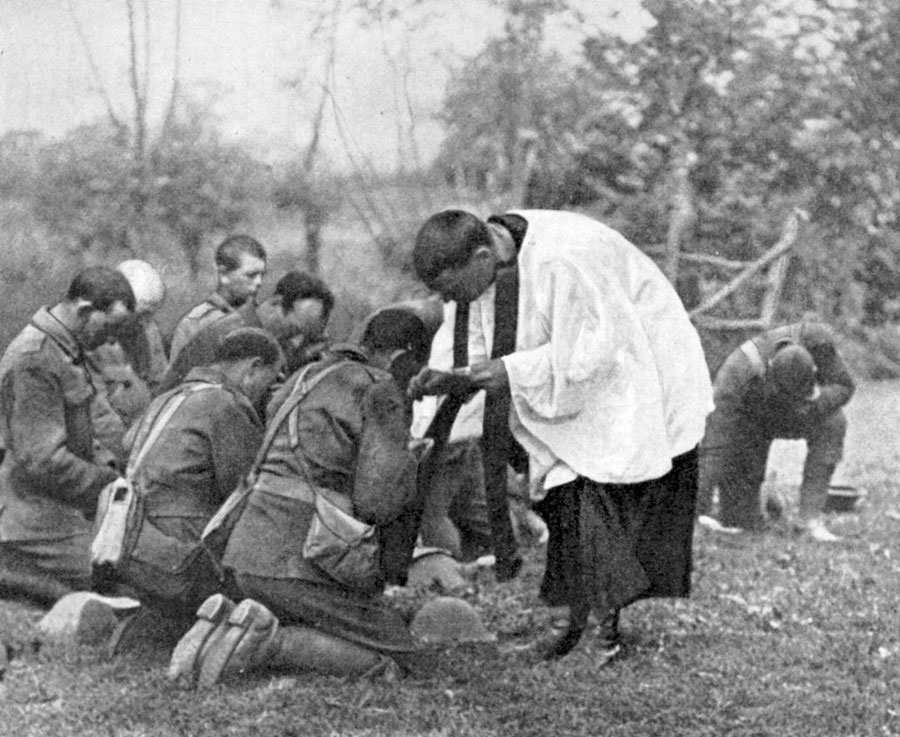
35.4—Jul/Aug 2022
The Death Rattle of a Tradition
Contemporary Catholic Thinking on the Question of War by Andrew Latham
more from the online archives
calling all readers
Please Donate
"There are magazines worth reading but few worth saving . . . Touchstone is just such a magazine."
—Alice von Hildebrand
"Here we do not concede one square millimeter of territory to falsehood, folly, contemporary sentimentality, or fashion. We speak the truth, and let God be our judge. . . . Touchstone is the one committedly Christian conservative journal."
—Anthony Esolen, Touchstone senior editor





